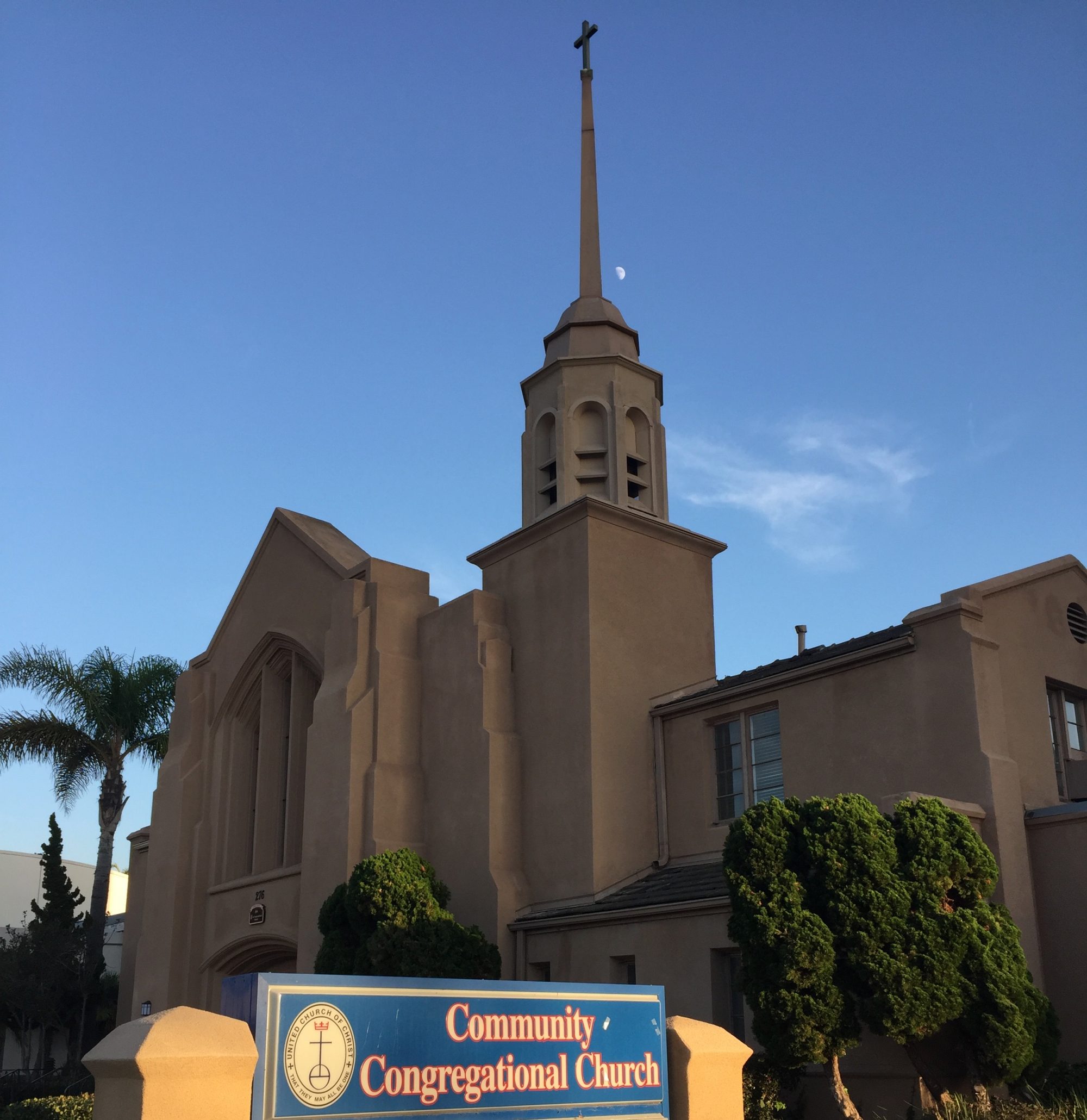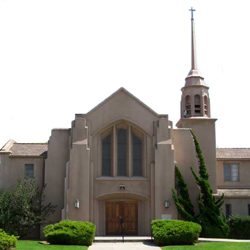“Go, Dog. Go! (ONA)”
A communion meditation based on Ephesians 4:1-6
September 2, 2018
Community Congregational Church of Chula Vista
Dr. Sharon R. Graff
* * * * *
Several years ago, I was reintroduced to an old friend. The friend was this book—Go, Dog. Go! To a young child, and perhaps to the child still alive in each of us, this is a story of wonder, of work, of play, of caring, of friendship, of honesty. It is a story whose words teach young children about up and down and all around, and, more importantly, the story teaches all of us about diversity in action. In it, dogs are skating, walking, sailing, bicycling, running, sitting, resting, driving—these dogs find their way to helicopters, ferris wheels, baseball games, ski lifts, and hot air balloons. These are dogs that know how to seize the moment and live it to its fullest.
Ultimately, Go, Dog. Go! is a story about the best dog party ever—where all the dogs in the world are welcome; where together, all sizes and colors of dogs play and eat cake and blow noisemakers and swing from a tree and play hide-and-go-seek in its branches. The words that accompany the very inclusive, colorful picture are these:
A dog party!
A big dog party!
Big dogs, little dogs,
red dogs, blue dogs,
yellow dogs, green dogs,
black dogs, and white dogs
are all at a dog party!
What a dog party!
Believe it or not, this old friend of a book is a reminder of ancient marching orders from God to us: the marching orders named in the scripture we heard today. The marching orders that tell us to get out there and travel on the road God called you to travel…no sitting around on your hands…no strolling off course down some path that goes nowhere… travel God’s call with humility and discipline, steady as you go, writes the author of Ephesians…and here’s the really important part: pouring yourselves out for each other in acts of love, alert at noticing differences, quick at mending fences. Why? Because you are all called to travel in hope, with one faith, one baptism, one God of all, who rules over all, works through all, and is present in all.
Unity in diversity…these are our marching orders as followers of the Christ. And, on this weekend of national ceremonies honoring Senator John McCain, is the perfect time for us to recall those marching orders from God. One of the speakers at one of the several memorials said this of John McCain: “He loved basic values: fairness, honesty, dignity, respect…giving hate no safe harbor. Leaving no one behind. And understanding that, as Americans, we’re part of something much bigger than ourselves.”
Giving hate no safe harbor…leaving no one behind… Friends, that is the essence of the initials O.N.A., translated into Open and Affirming. There is much in the bulletin insert today about this uniquely UCC program, a program that has poured out God’s welcoming love on countless gay and lesbian individuals hurt by organized religion in the past, and now happily contributing in over 1400 UCC ONA congregations nationwide. These are churches that have educated themselves on many issues related to the LGBT community, and out of that education, have made the courageous decision to fully accept and welcome into their congregations gay, lesbian, bisexual and transgender people—baptizing their children, performing their weddings, hosting their memorials, welcoming them as full members of any board or committee and teachers in any church classroom…in essence, leaving no person behind. Over the years, ONA has retained its core value of being a witness of love and welcome for GLBT folks, while also expanding to include diversity of all sorts: economic, racial and ethnic, educational, physical ability, and so on. The circle of God’s love and the arms of God’s welcome just get bigger and bigger. So is the message of Christ as written in the letter to the Ephesians. So is the message playfully presented in this fun story, “Go, Dog. Go!” Today is the final Sunday of this particular sermon series exploring the various UCC Statements of Witness, and with such a playful story, I invite us to have some fun together. Your job is to read—out loud—any words you see on the screen. Let’s practice! [1st slide: Dog.] If a picture has no words printed, then I’ll jump in with that part of the story. And, to make it more interesting, we’ll go back and forth—left and right sides of the congregation—starting with your left. Ready?
Big dog. Little dog. Big dogs and little dogs. Black and white dogs.
“Hello!” “Hello!” “Do you like my hat?” “I do not.” “Good-by!” “Good-by!”
One little dog going in. Three big dogs going out. A red dog on a blue tree.
A blue dog on a red tree. A green dog on a yellow tree.
Some big dogs and some little dogs going around in cars. A dog out of a car.
Two big dogs going up. One little dog going down. One dog up on a house.
Three dogs down in the water. A green dog over a tree. A yellow dog under a tree.
Two dogs in a house on a boat in the water. A dog over the water. A dog under the water. “Hello again.” “Hello.” “Do you like my hat?” “I do not like it.” “Good-by again.” “Good-by.” The dogs are all going around, and around, and around. “Go around again!”
Now it is night. Three dogs at a party on a boat at night. Dogs at work. Work, dogs, work! Dogs at play. Play, dogs, play! “Hello again.” “Hello.” “Do you like my hat?” “I do
not like that hat.” “Good-by again.” “Good-by!”
Dogs in cars again. Going away. Going away fast. Look at those dogs go. Go, dogs. Go!
“Stop, dogs. Stop! The light is red now.” “Go, dogs. Go! The light is green now.”
Now it is night. Night is not a time for play. It is time for sleep. The dogs go to sleep. They will sleep all night. Now it is day. The sun is up. Now is the time for all dogs to get up. “Get up!” It is day. Time to get going. Go, dogs. Go!
There they go. Look at those dogs go! Why are they going fast in those cars? What are they going to do? Where are those dogs going? Look where they are going. They are all going to that big tree over there. Now the cars stop. Now all the dogs get out. And now look where those dogs are going! To the tree! To the tree! Up the tree! Up the tree! Up they go to the top of the tree. Why? Will they work there? Will they play there? What is up there on top of that tree?
[All together] A dog party! A big dog party! Big dogs, little dogs, red dogs, blue dogs, yellow dogs, green dogs, black dogs, and white dogs are all at a dog party What a dog party! “Hello again. And now do you like my hat?” “I do. What a hat! I like it! I like that party hat!” “Good-by!” “Good-by!”
Silly, yes. And also profoundly filled with truth, truth that this nation needs to hear. The truth that a party isn’t really much fun if any are excluded. The truth that God’s kingdom has no walls. The truth that all are welcome—big, little, red, blue, hats and no hats. The truth that will strengthen and grow this congregation—that all are welcome, all are affirmed, all are loved—no matter who you love in return. This will be the best dog party of all! This will be the kingdom of God, as Jesus says, right here “at hand!”
Amen and Blessed Be!

